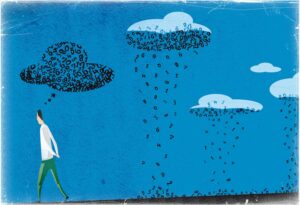Back to: English Language Primary 3
Welcome to class!
In today’s class, we shall be talking about Descriptive Comprehension. This is where we will use our words to paint vivid pictures of events, like natural disasters, and help others experience them through our descriptions.
Descriptive Comprehension
Imagine we’re artists with words, capturing events with our descriptions! We’ll learn how to vividly describe an event, like a rainstorm wreaking havoc on a community. You’ll use your writing to make readers feel like they were right there.
Setting the Scene:

Close your eyes and imagine the scene: Dark clouds gathering, the air thick with anticipation. The first drops fall gently, but then the rain intensifies, and chaos unfolds. Trees sway wildly, roads turn into rivers, and the community is left in awe of nature’s power.
Describing the Chaos:
As the rain pounds, houses shake, and windows rattle. The streets become rivers, and cars struggle through the rising water. People run for cover, their umbrellas no match for the relentless downpour. Thunder crashes and lightning streaks across the sky, painting it with jagged light.
Emotions in the Storm:

Describing an event is not just about the visuals, but also the emotions it evokes. The storm brings a mix of fear, awe, and wonder. The power of nature humbles everyone in its path, reminding them of their place in the world.
Recovery and Reflection:

As the storm subsides, the community emerges to assess the aftermath. Streets are littered with debris, but the sun peeks through the clouds, offering hope. Neighbors come together to help each other, a testament to human resilience in the face of adversity.
Question Time:
Imagine you’re an author, describing this rainstorm and its impact. Write a descriptive paragraph that takes readers on a journey through this event. Make them feel the rain, hear the thunder, and experience the emotions.
Evaluation:
What details do you think are important to include when describing an event? How do you make readers feel like they were actually there?
We have come to the end of today’s class. I hope you enjoyed the class!
In the next class, we shall be discussing Vocabulary acquisition and Substitution of words in poems.
In case you require further assistance or have any questions, feel free to ask in the comment section below, and trust us to respond as soon as possible. Cheers!
